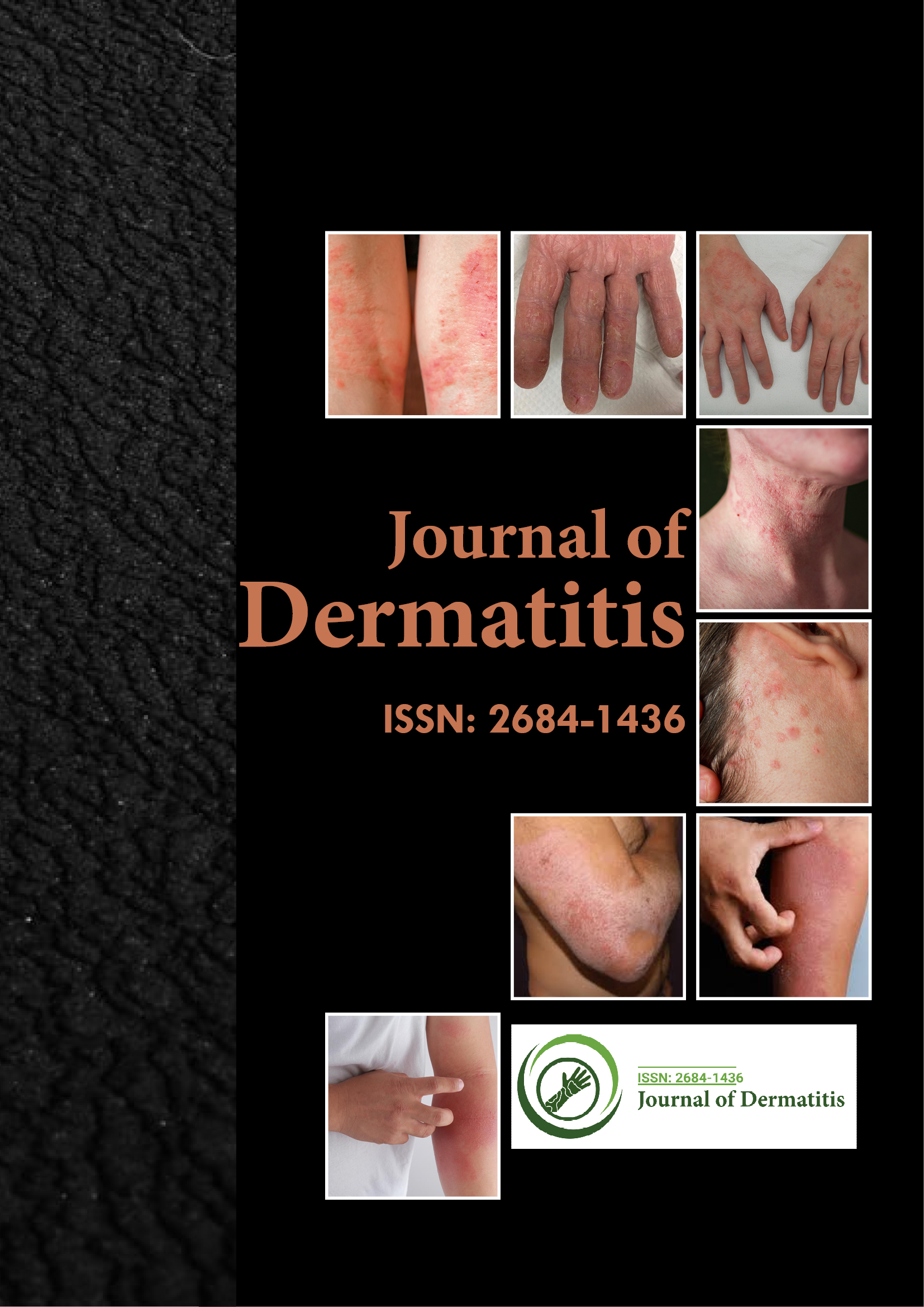Indexed In
- RefSeek
- Hamdard University
- EBSCO A-Z
- Euro Pub
- Google Scholar
Useful Links
Share This Page
Journal Flyer

Open Access Journals
- Agri and Aquaculture
- Biochemistry
- Bioinformatics & Systems Biology
- Business & Management
- Chemistry
- Clinical Sciences
- Engineering
- Food & Nutrition
- General Science
- Genetics & Molecular Biology
- Immunology & Microbiology
- Medical Sciences
- Neuroscience & Psychology
- Nursing & Health Care
- Pharmaceutical Sciences
Commentary - (2021) Volume 6, Issue 6
A Brief Description on Cosmetic Dermatitis
Georgios Oliveira*Received: 02-Nov-2021 Published: 23-Nov-2021, DOI: 10.35248/2684-1436.21.6.139
Description
Cosmetics are applied to modified human skin or to cleanse, beautify, enhance attractiveness, or to change the appearance of normal or previously modified human skin or parts. It is applied in other ways, which is an article intended to be rubbed, poured, sprayed and introduced into a part, and is not intended or intended to affect the physiological abilities of human skin or body. The increasing use of cosmetics by modern society has contributed to a surprising increase in the incidence of cosmetic dermatitis (CD). Pathogens are cosmetics of the skin, hair, nails and eyes. The reported cases of cosmetic dermatitis are just the tip of the iceberg, as most patients who experience cosmetic side effects stop seeing a expert but discontinue using suspicious products.
Cosmetology products include everything from shampoos to make-ups to colognes to get the most out of our mood. It can also cause skin irritation and allergic reactions. A dermatological study published in 2010 found that more than one-third i.e., 900 study participants had at least one allergic reaction to cosmetic ingredients. Problems range from simple rashes to full-blown allergic reactions. Symptoms may appear immediately after using a new product or after years of successful use of the product. There are two types of skin reactions to cosmetological products. What is called primary irritant contact dermatitis occurs when something actually damages the skin. The irritant causes the burns, stinging, itching, or redness on the area where the product is used. Blisters and bleeding may occur, especially if scratched by ourselves. Second type of reactions actually affects your immune system. This is called allergic contact dermatitis and symptoms include redness, swelling, itching and hives. The skin may become red and rough. The most common places are the face, lips, eyes, ears, and neck, but any part of the body can cause an allergic reaction. It can be difficult to distinguish between the two types of responses. Sometimes patient can also have a reaction that is a combination of the two types often caused by fragrances and preservatives. Even products that say “unscented" it may have a scent to hide the chemical odor. Person may not smell it, but it causes an allergic reaction.
Almost all products, including water, should contain some preservatives. The most common are parabens, imidazolidinyl urea, quaternium 15, DMDM hydantoin, phenoxyethanol, methylchloroisothiazolinone, and formaldehyde. Everything is related to skin allergies. Beauty products that are most likely to cause skin reactions include bath soaps, cleansers, antiperspirants, eye makeup, moisturizers, shampoos, longlasting lip stains, nail polish (especially those containing formaldehyde), and nail glue containing methacrylate. Hair dyes can also cause skin reactions, especially those containing phenylenediamine and ammonium persulfate, which is used to lighten hair. Cosmetological products containing alpha hydroxy acids, especially those with an AHA value above 10%, can cause problems such as redness, swelling, blisters and itching. Retin-A wrinkle cream and serum can also cause irritating contact dermatitis in some people. Many are "sensitive to sunscreen". Almost all sunscreens can cause dermatitis-like reactions. If this is the case, consult the dermatologist about the best way to protect skin from the sun. Most importantly, stop using whatever is causing the reaction immediately. This may solve the problem. Patch tests help identify allergies to cosmetics and pinpoint problematic allergens. Some hydrocortisone supplements can cause side effects on sensitive areas such as the face, so consult doctor first before using.
Citation: Oliveira G (2021) A Brief Description on Cosmetic Dermatitis. J Dermatitis. 6:139.
Copyright: © 2021 Oliveira G. This is an open access article distributed under the terms of the Creative Commons Attribution License, which permits unrestricted use, distribution, and reproduction in any medium, provided the original author and source are credited

